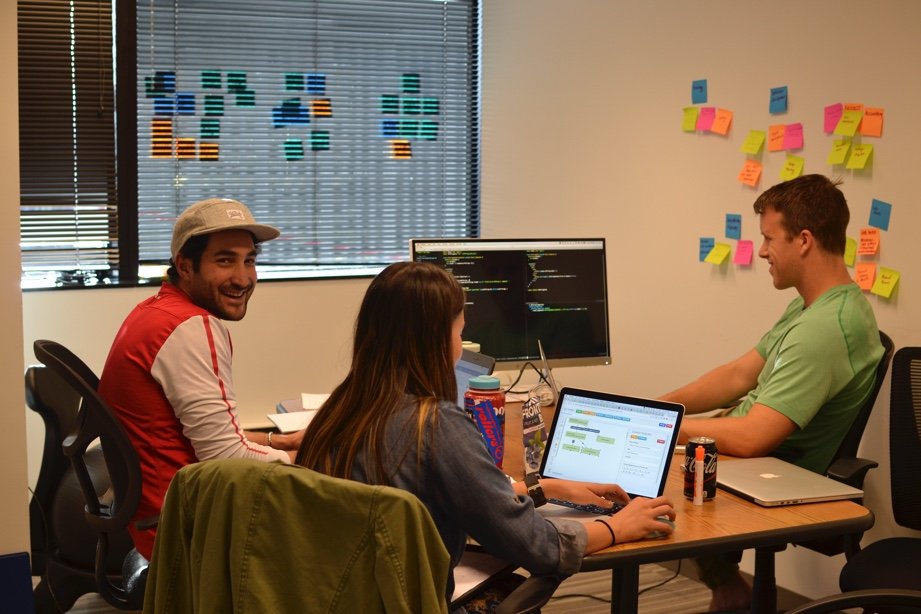How to Get into Healthcare Without a Medical Degree

Working in healthcare can be an extremely rewarding job. You get to help sick people get better, you save lives, and no two days are ever the same. Contrary to what you might think, you don’t necessarily need a degree in a medical field to start a career in healthcare. Here are some ways into the healthcare field for those who don’t have a degree at all or who have a degree in a non-medical discipline.
1. Become a healthcare aide
The word ‘aide’ simply means ‘helper’, and there are plenty of opportunities for you to start your healthcare career as an aide. You could become:
- a home health aide, who helps elderly or disabled people perform their daily tasks in their home or out in the community;
- an occupational therapist aide, who prepares materials and equipment and performs clerical tasks to help occupational therapists do their job of providing physical or mental rehabilitation to patients;
- a psychiatric aide, who helps care for mentally ill patients in hospitals and other care facilities, for example, by helping them bathe and dress or by leading recreational activities.
To qualify for these jobs, you will need a high school diploma or a GED. You might also need to show potential employers that you are interested in healthcare. One of the ways in which you can do this is by volunteering in healthcare positions, such as hosting blood drives or teaching first aid classes in your community. As a volunteer, you will get training for your position, which will help make you more attractive to potential employers.
Read More: Careers That Can Help People to Manage Their Stress
2. Take a conversion course
If you have a degree in a non-medical field, you might be eligible to take a conversion course. These programs, which are also often called accelerated programs, enable you to gain a new degree in a shortened period of time—sometimes even in less than a year!
It’s worth pointing out that in order to be accepted onto a conversion course, you might need to be able to demonstrate that you have previously completed modules in certain subjects. For example, some online accelerated BSN programs for non nurses require you to have previously taken classes in microbiology, chemistry, anatomy, and physiology. If you don’t currently meet these requirements, you could look into taking these courses at your local community college prior to applying to the conversion course. The beauty of conversion courses is that once you have completed the course, you will receive the same qualification that students gain when doing the ‘full’ course.
3. Take another type of short course
If you don’t have a bachelor’s degree, another way to get into healthcare is to study for a short vocational course that will train you in a specific profession. For example, to become a medical assistant, you only need to gain a certificate, which normally takes a couple of semesters of college-level study to complete. While there are some differences between what medical assistants are allowed to do depending on their workplace and their state, in general terms, medical assistants perform a variety of both clerical and clinical tasks in healthcare settings, such as scheduling appointments, recording symptoms, performing basic lab tests, and changing wound dressings.
Once you have worked as a medical assistant for a while, you might choose to take another short course to specialize in the clinical area that interests you the most, such as:
- geriatrics
- cardiology
- obstetrics and gynecology
- endocrinology
- neurology
- oncology
You could also choose to ‘top up’ your higher education certificate or diploma through an accelerated course and gain a bachelor’s degree to give yourself more career advancement options, such as becoming a nurse or a clinical lab technician. By pursuing your higher education in several stages, you will be more able to continue working while you study, and you will also be more confident in your chosen career because you will have already worked in clinical settings prior to applying for a bachelor’s degree.
Other healthcare roles that only require you to gain a certificate or an associate degree (which usually lasts two years) include:
- Emergency Medical Technician (EMT)
- pharmacy technician
- dental assistant
- health information technician
- medical secretary
- nursing assistant
- phlebotomist
Read More: How a DBA Degree Can Benefit Entrepreneurs of the Future
4. Keep the governmental and non-profit sectors in mind
Working for a pharmacy or a clinical setting is not the only way to get involved in healthcare. Another path to a healthcare career is to work for a governmental department (either federal, state, or local) or a non-profit that deals with some aspect of providing healthcare or health advocacy.
As an example, the Fund for Public Health in New York City is a non-profit organization dedicated to advocating for better health services for New York City residents and delivering health education and other health-related programs. One of the example job roles available at this organization is that of Public Health Navigator, someone who visits parents and prospective parents in their homes to deliver health education and signpost clients to the services they need. To become a Public Health Navigator with the Fund for Public Health in New York City you only need a high school diploma or a GED, although they do require you to also have previous experience working within community outreach and perinatal education.
Another way to work in healthcare with only a high school diploma or a GED is to become a member of the AmeriCorps VISTA program. AmeriCorps is a federal agency that promotes volunteer service across the United States, and through its VISTA program, it brings workers to non-profit organizations that need them, either for the summer or for a year. Although AmeriCorps members are technically volunteers, they receive a basic stipend to help with their cost of living, which amounts to between about $41 and $56 per day, depending on the location.
Conclusion
While many healthcare jobs require you to have at least a four-year degree in a relevant field such as nursing or medical technology, there are many entry-level positions available to those with lower educational qualifications. You just need to find them!











